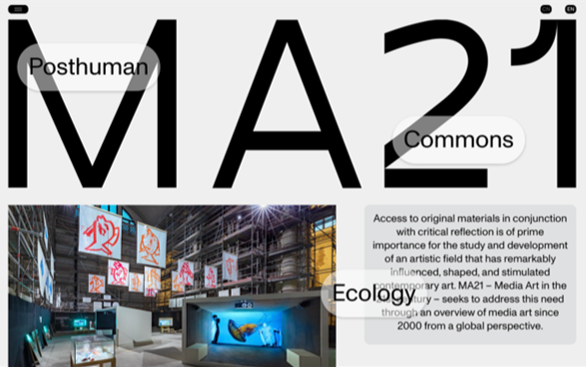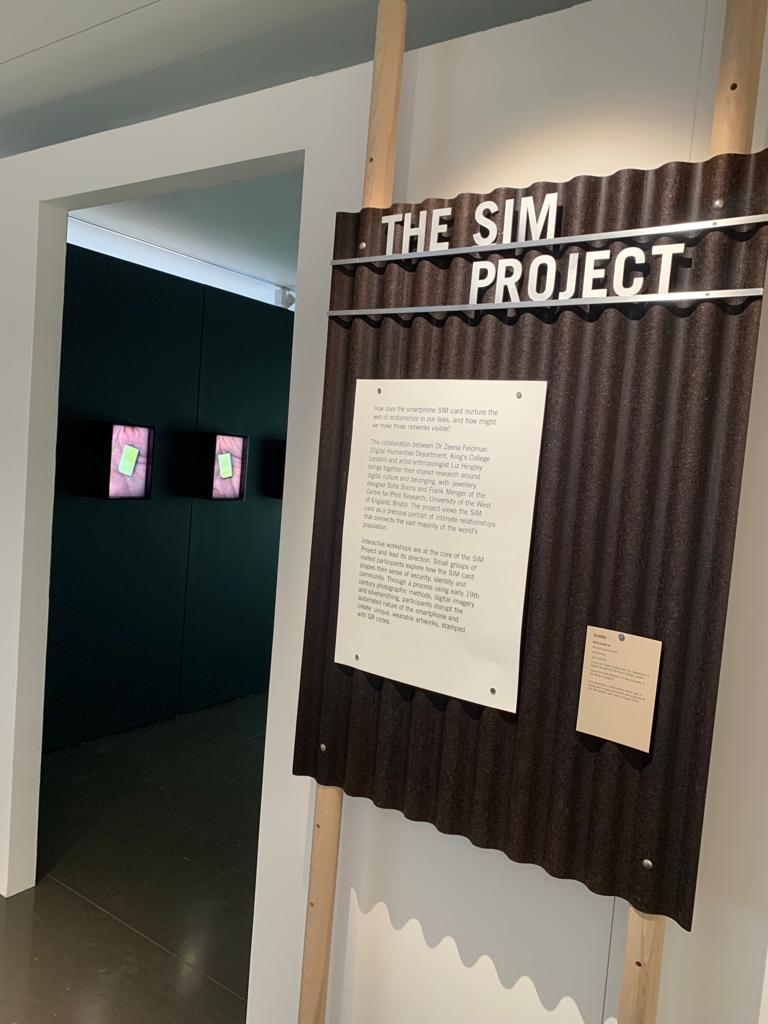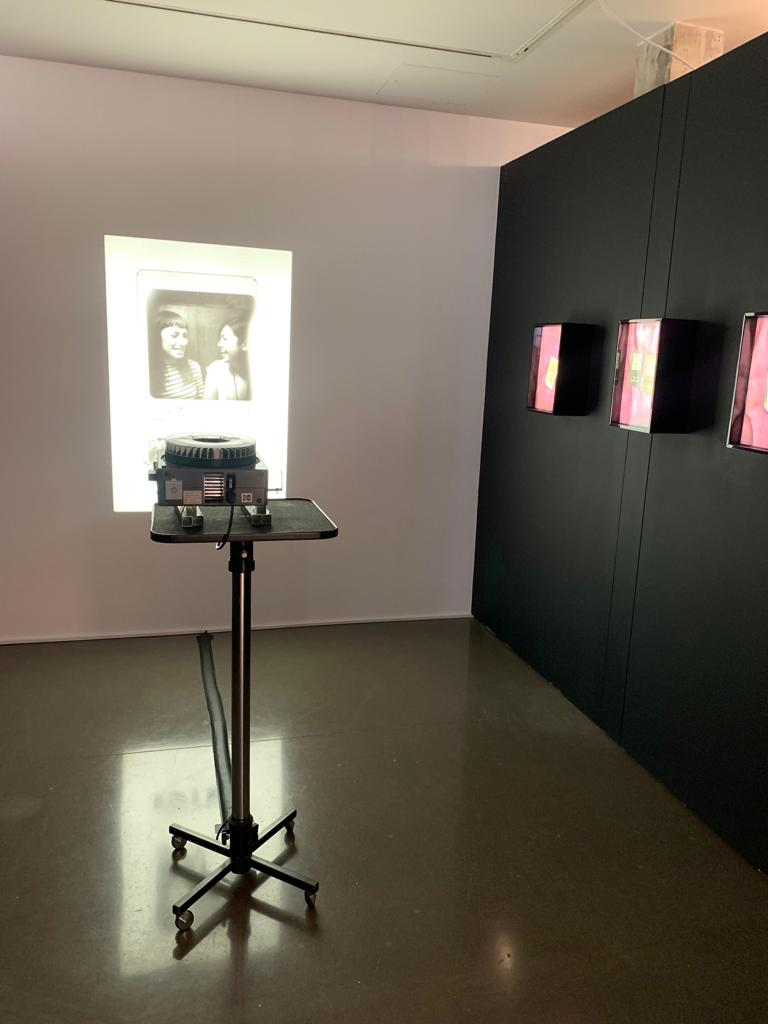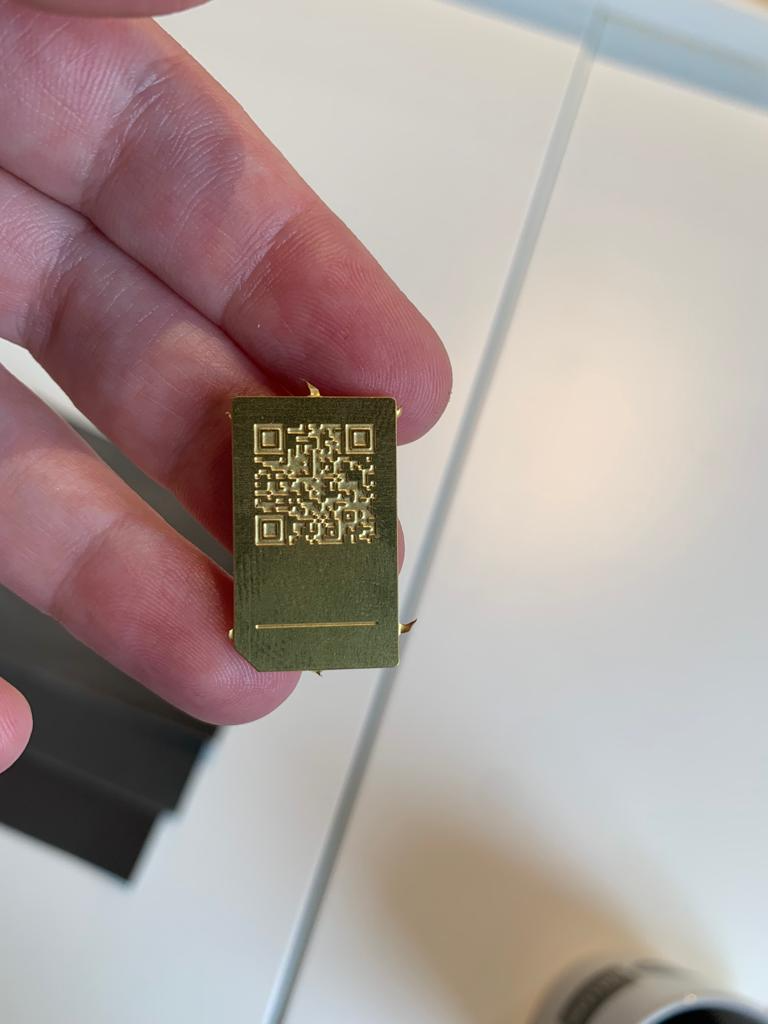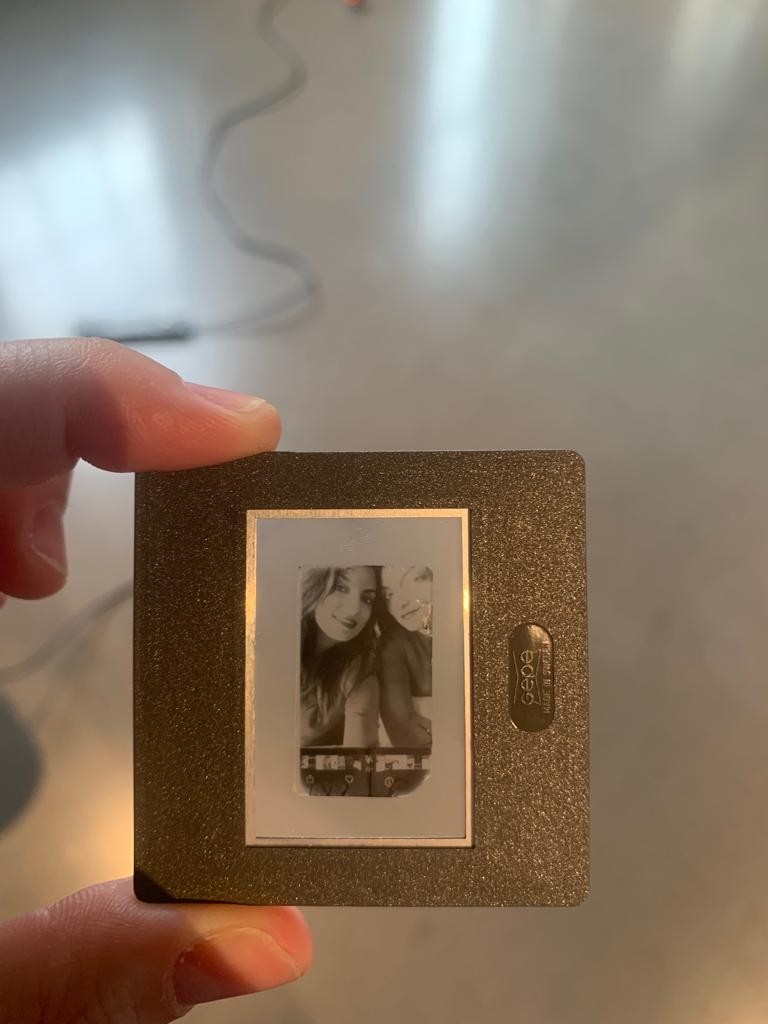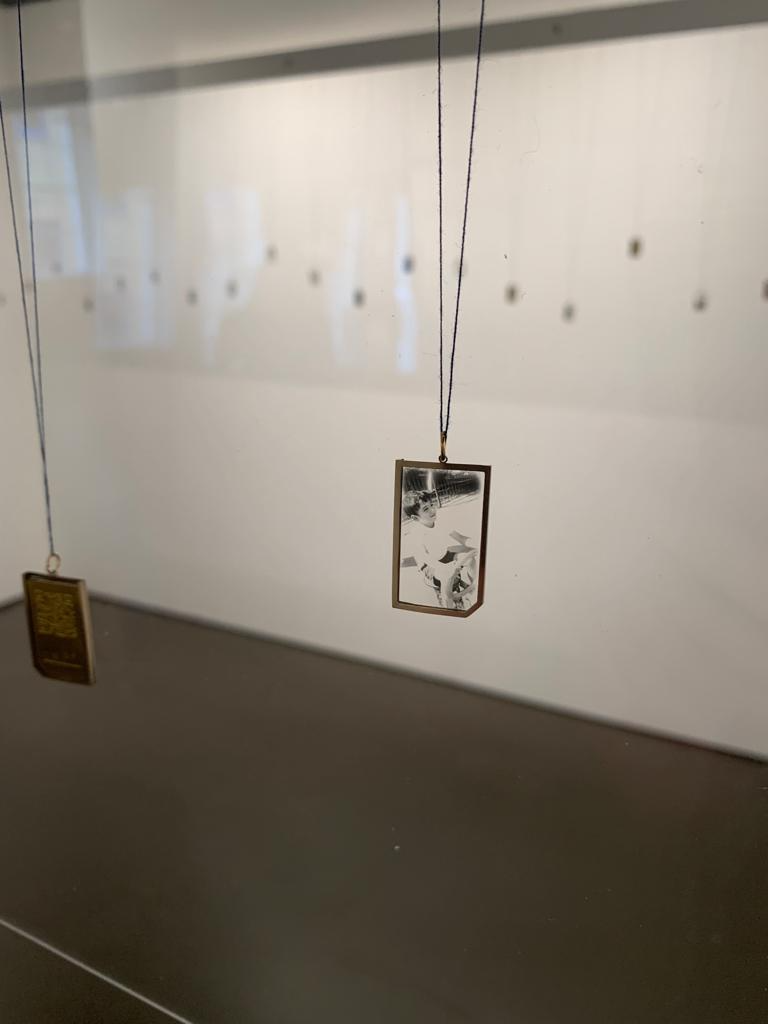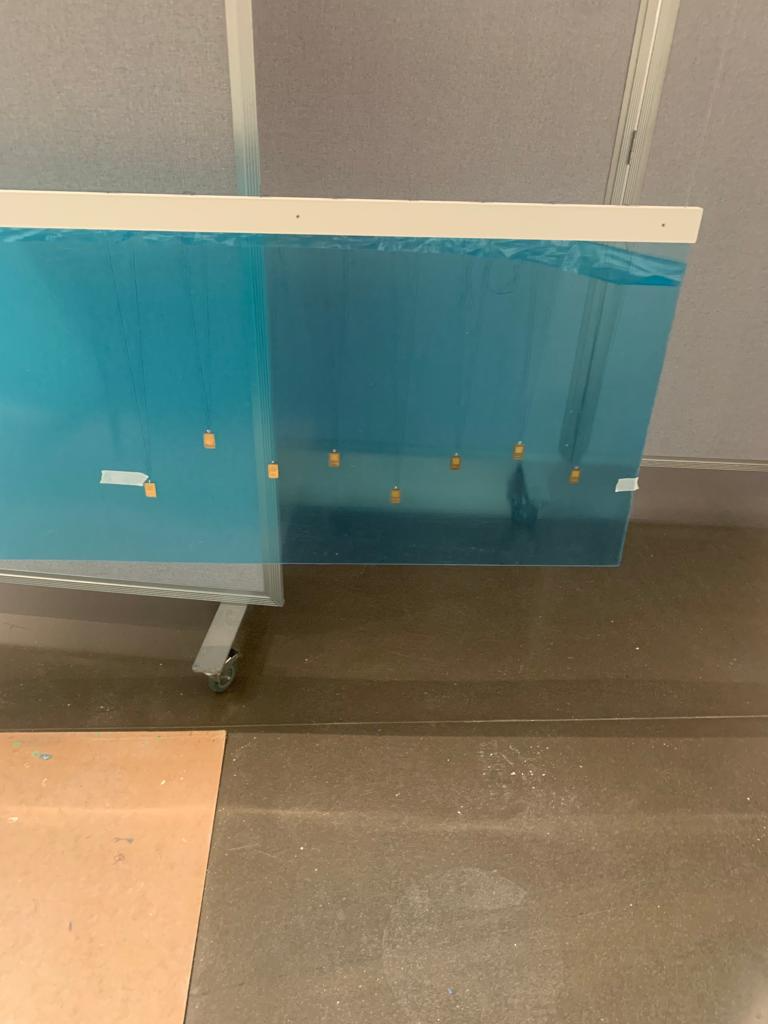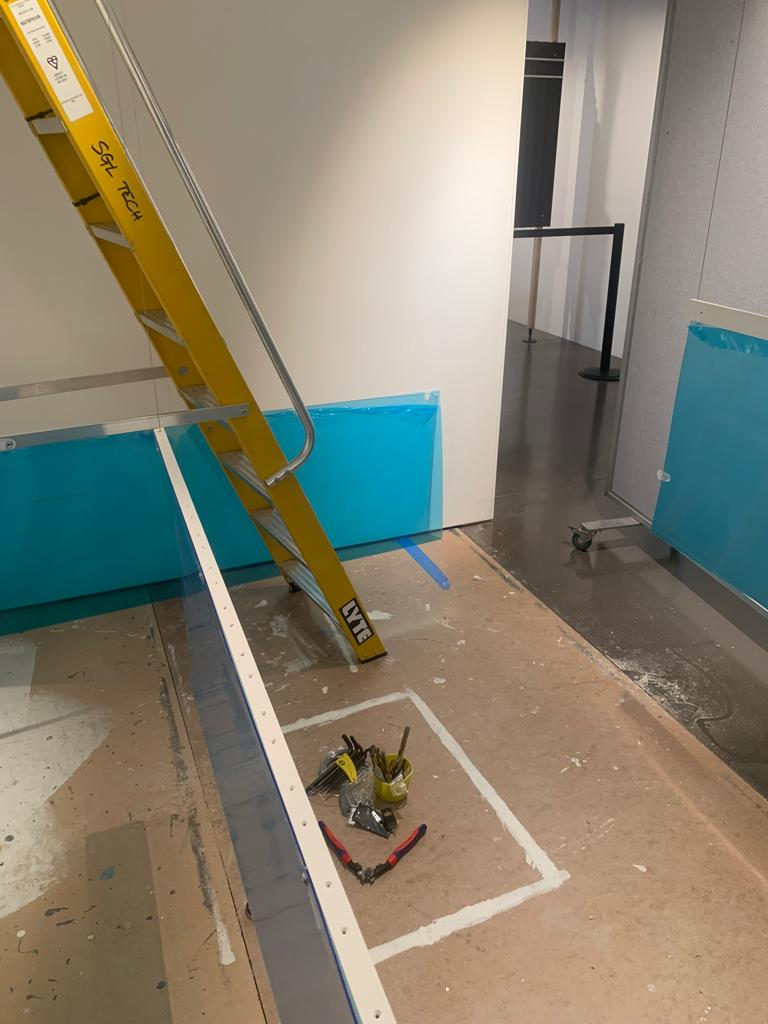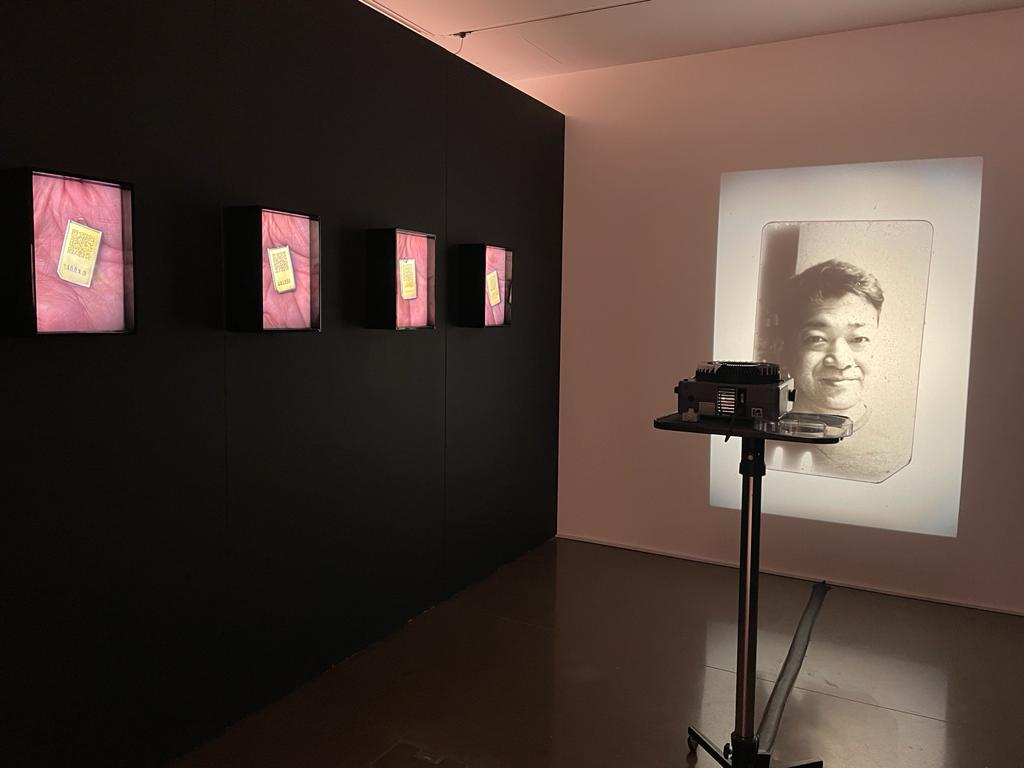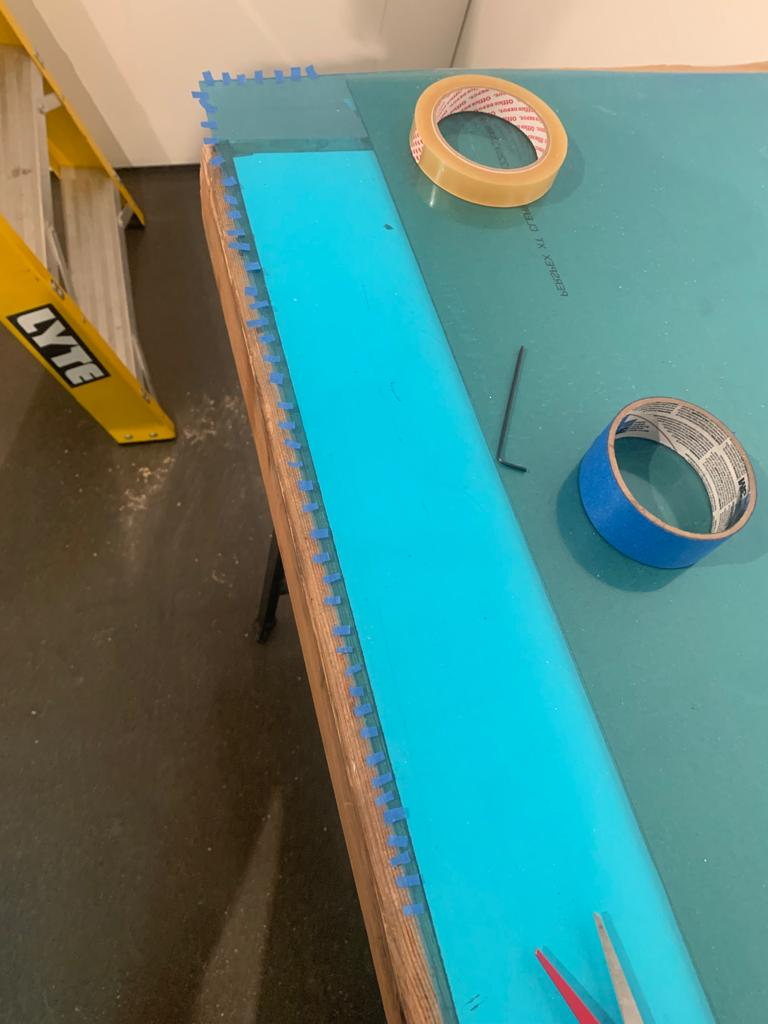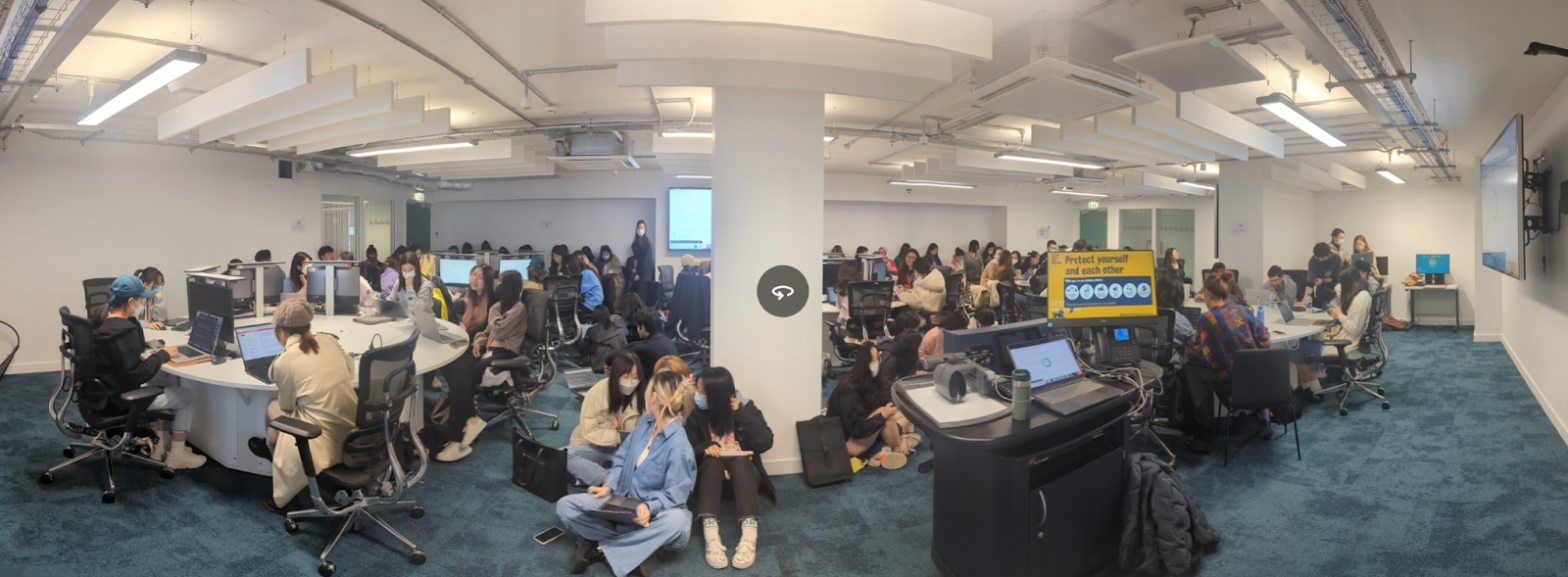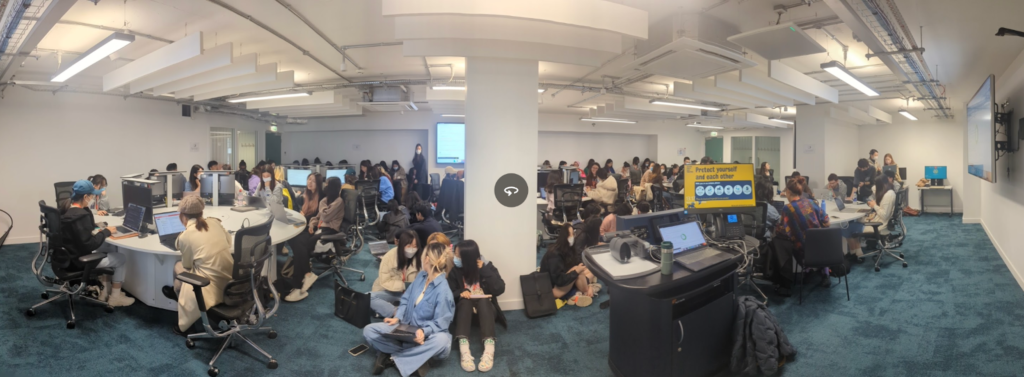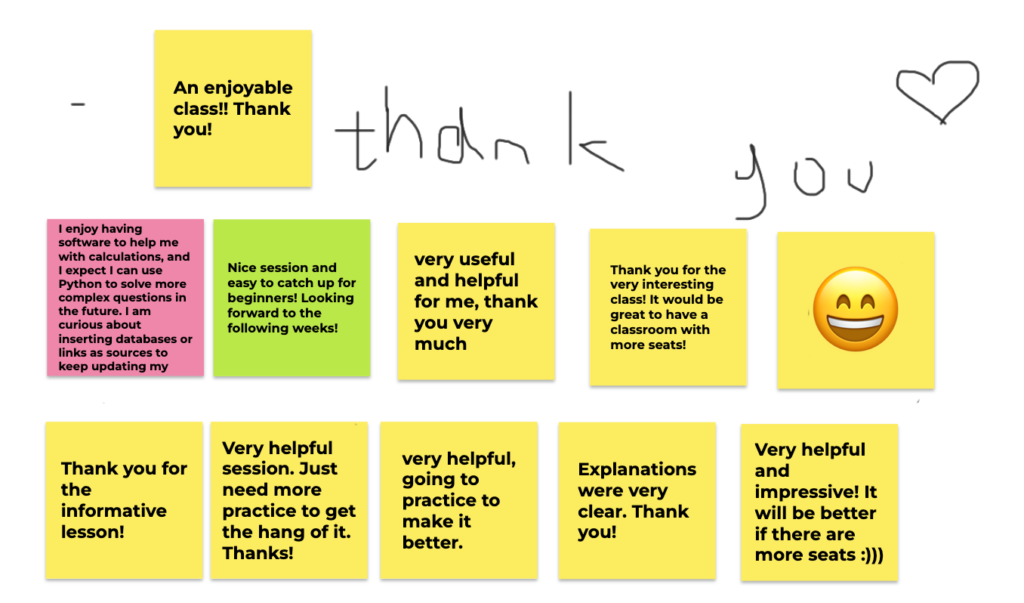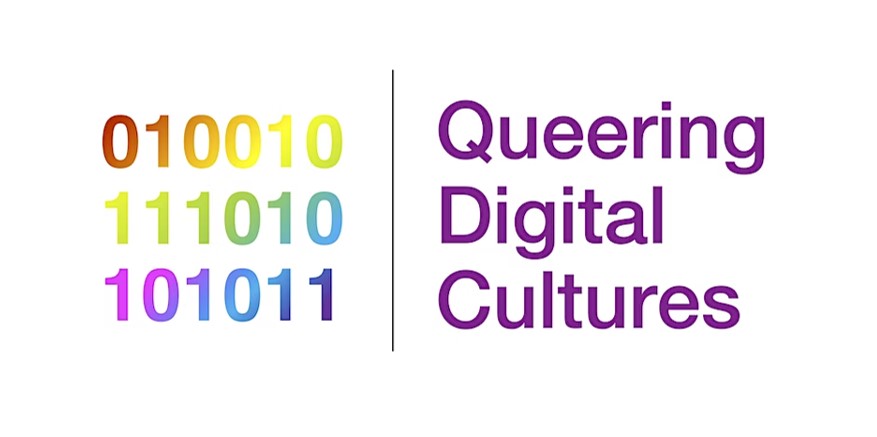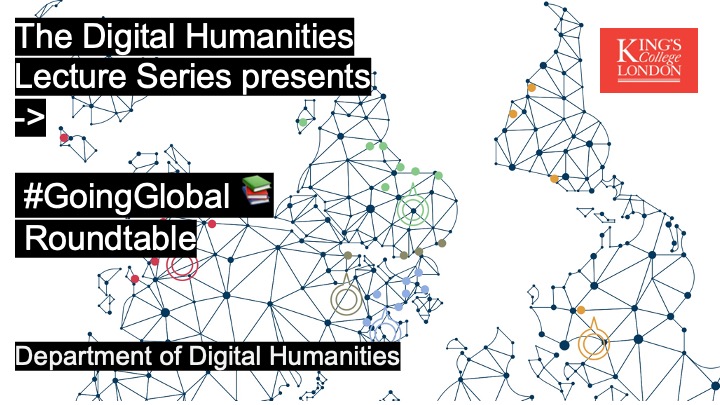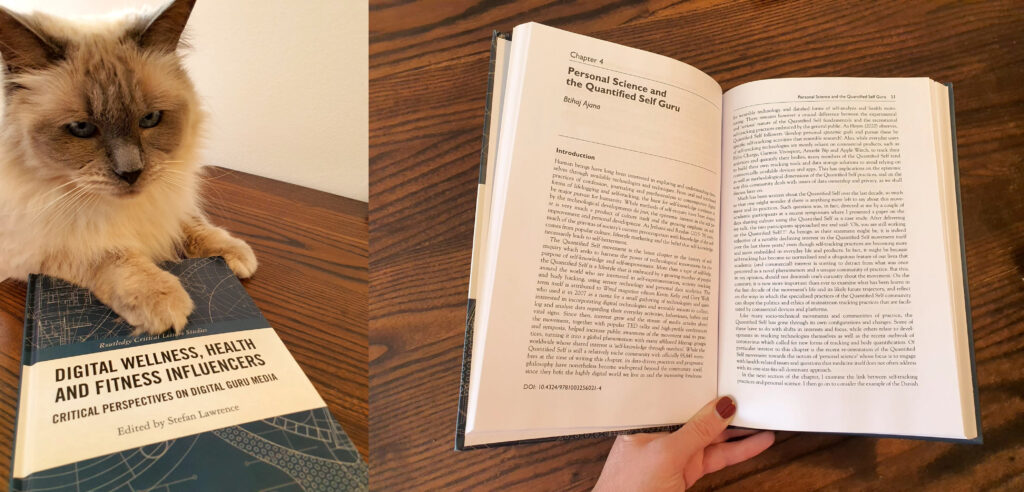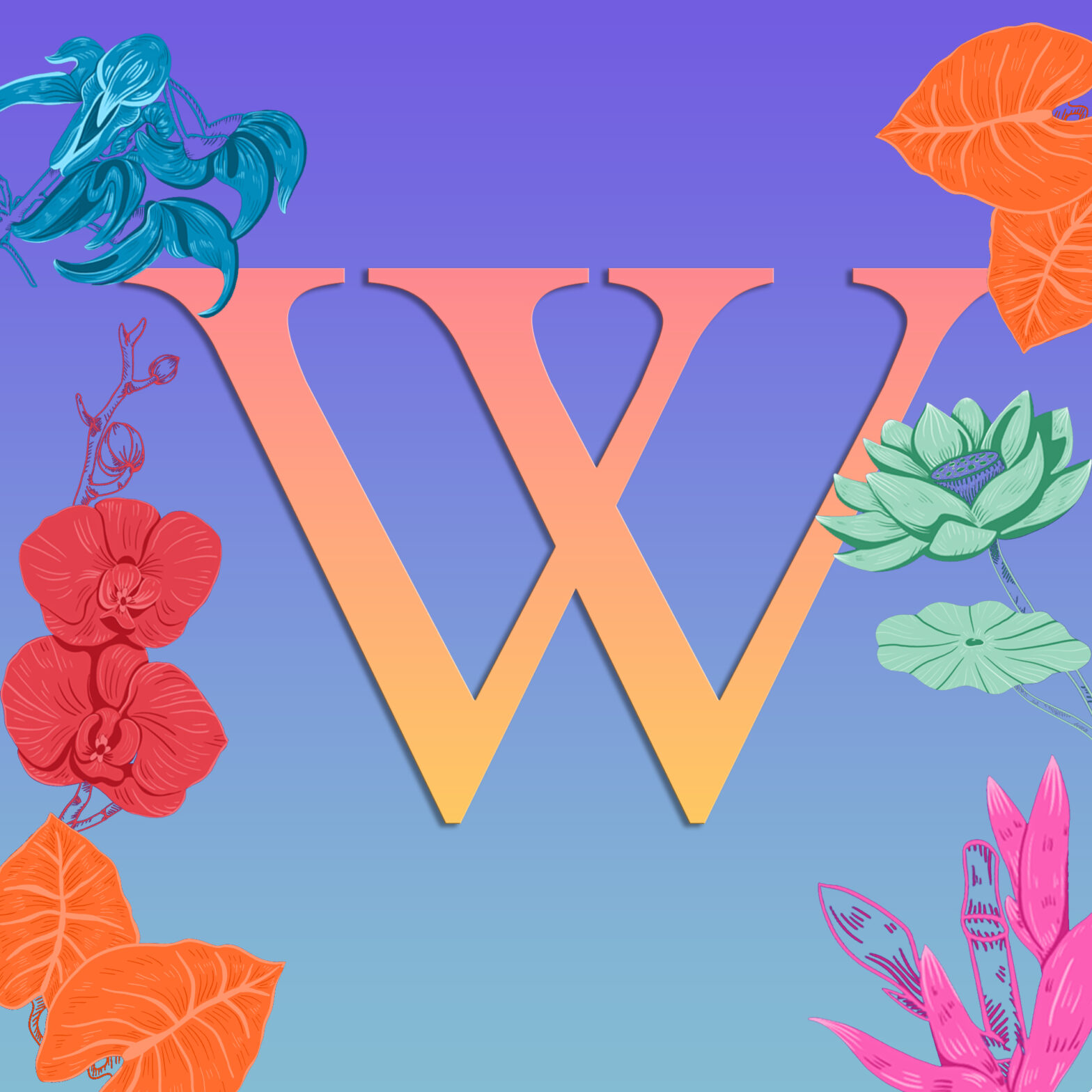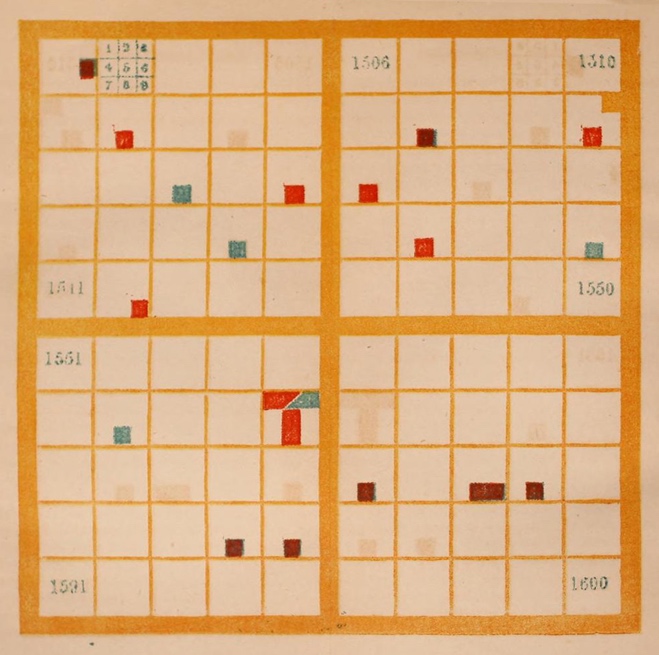Joanna Zylinska, Professor of Media Philosophy and Critical Digital Practice, has contributed to the development and launch of global project, Media Art 21: Practices, Reflections and Pedagogies of Global Media Art Since 2000, including curating the post-human section and authoring essay, “Nonhuman Creativity”.
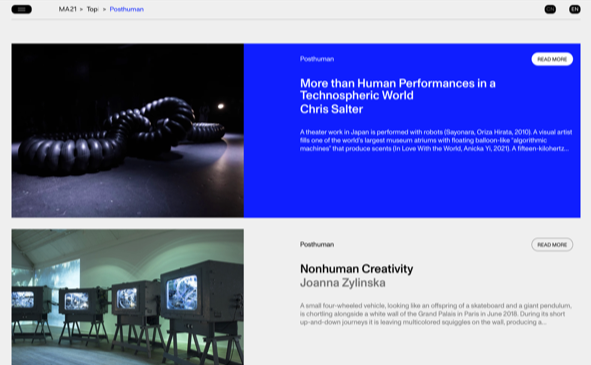
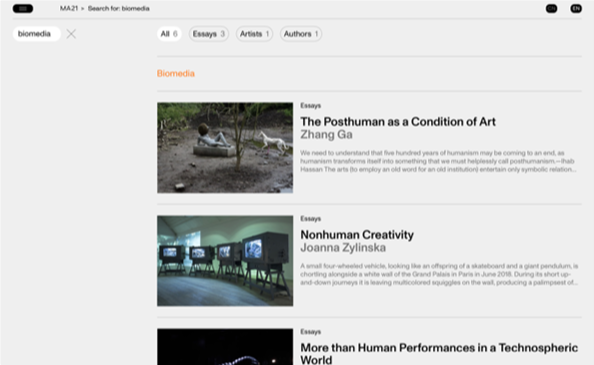
MA21 is a Chinese-English bilingual database-driven online resource initiated and produced by the Institute of Sci-Tech Art, Central Academy of Fine Art, in collaboration with the Art + Design Initiative at University of California, Berkeley.
Major funding is provided by the HE ART FUND with additional support by the New Media Art Foundation.
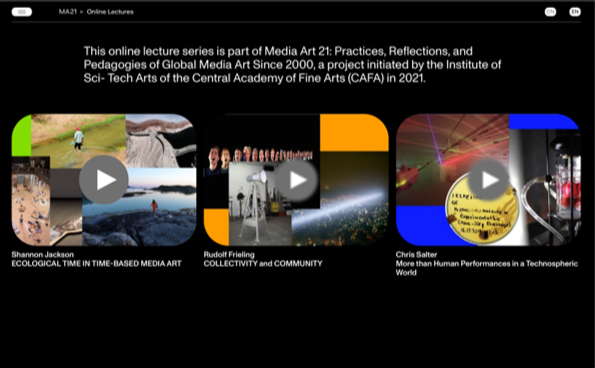
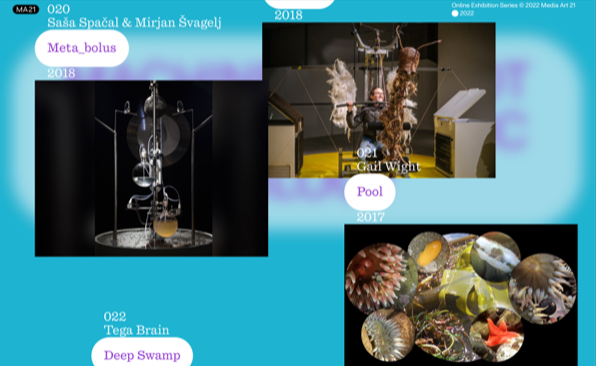
The inception of the project was catalyzed and went into production in the spring of 2021 during the global outbreak of the Covid-19 pandemic as a pedagogical response to increased online and remote learning due to pandemic-imposed physical separations. From a conceptual point of view, it is an attempt to continue the legacy of the highly influential media art online depository Media Art Net and to extend the theoretical discourse as well as trace the praxis of global media art since the new millennium…
With this release, the project has produced several hundred entries on artists and artworks to address the three essential thematic areas that inform the intellectual direction of the MA21 project, namely: Posthuman, Ecologies, and The Commons. The online project is designed with highly interactive features, employing multimedia technologies to cross reference artworks, artists, and related points of interest. In addition, a body of commissioned essays by leading scholars and curators have laid the foundational work on contextualizing and evaluating the artworks within larger social-economical ecologies as well as art-historical systems. Together, they weave a web of many threads to underscore the complex interdependence and reciprocity between thematic ramifications and artistic experiments.
For inquiries, please email info@ma21.org.

